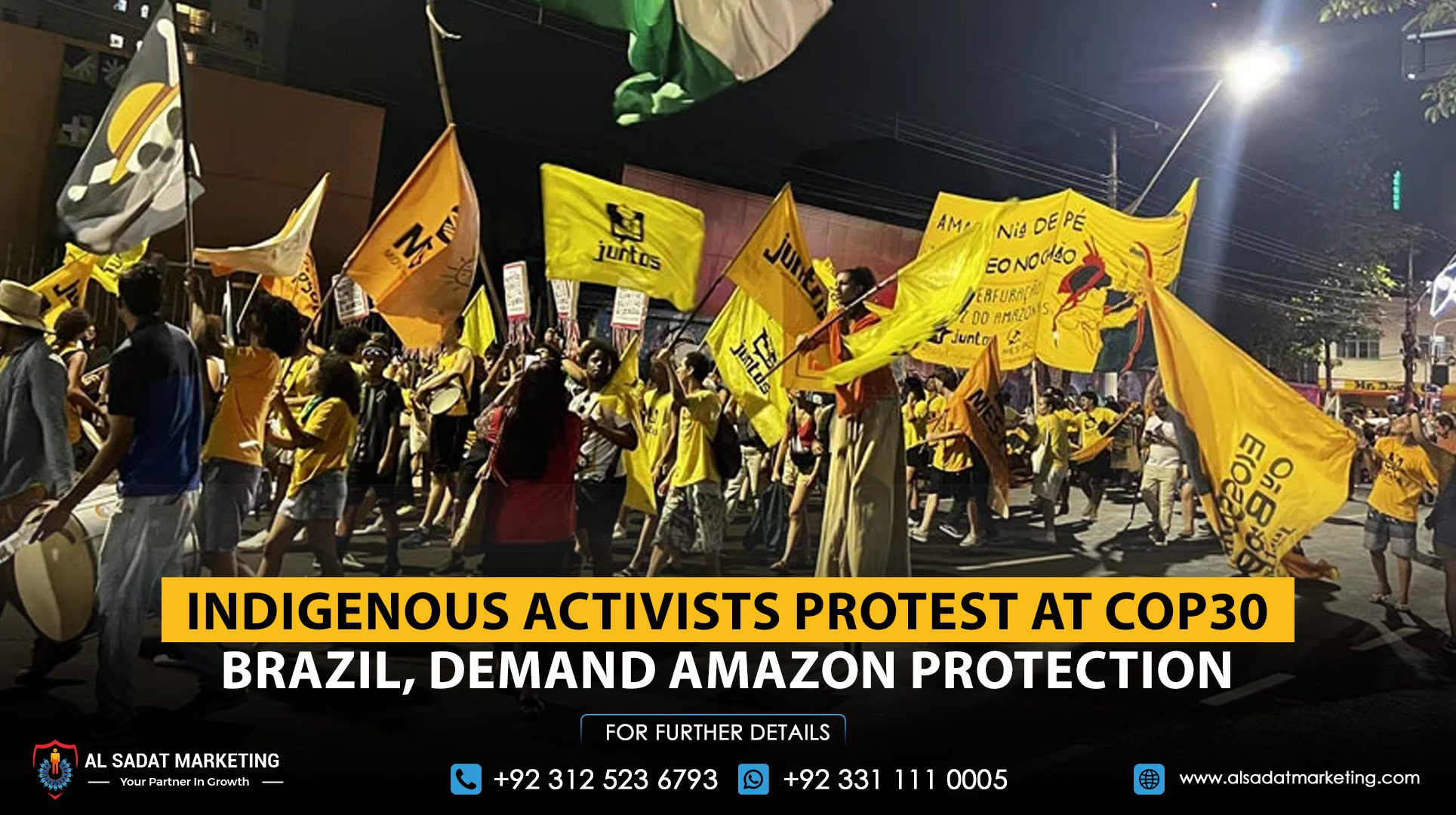Indigenous activists staged a powerful protest at the UN COP30 climate summit in Belem, Brazil, demanding stronger global action and protection for their ancestral lands. The demonstration took place on the second day of the conference, where dozens of Indigenous protesters entered the venue after a large march near the Amazon rainforest.
The protesters called attention to the growing threats from agribusiness, illegal mining, and oil exploration in the Amazon. “We can’t eat money,” said Gilmar, a Tupinamba leader, criticizing how climate finance discussions often ignore Indigenous communities’ needs and survival. According to a UN spokesperson, the protest caused minor injuries to two security staff and slight damage to the venue.
President Luiz Inácio Lula da Silva, who has emphasized Indigenous leadership in global climate efforts, said sustainability has always been a part of Indigenous culture. “Participants will be inspired by Indigenous peoples and traditional communities,” Lula said at the summit.
However, Indigenous leaders argue that statements are not enough and demand concrete action to stop encroachment on their territories. Ahead of COP30, groups from across the Amazon Basin urged world leaders to exclude Indigenous lands from mining, deforestation, and fossil fuel extraction.
Leo Cerda, an organizer from Ecuador who led the Yaku Mama flotilla that sailed 3,000 km to COP30, said, “Most states want our resources but do not want to guarantee our rights. We are here to secure nature for all humanity.”
Meanwhile, Brazil’s state-run oil company Petrobras received approval for offshore drilling near the Amazon’s mouth, sparking concern among environmentalists. Reports show that more than 5,000 fossil fuel lobbyists have attended UN climate summits in recent years, raising questions about the balance between profit and protection.
COP30 has brought together representatives from 195 countries, though the United States remains absent. Activists continue to urge stronger international cooperation to safeguard the Amazon and prioritize Indigenous rights in the global fight against climate change.










